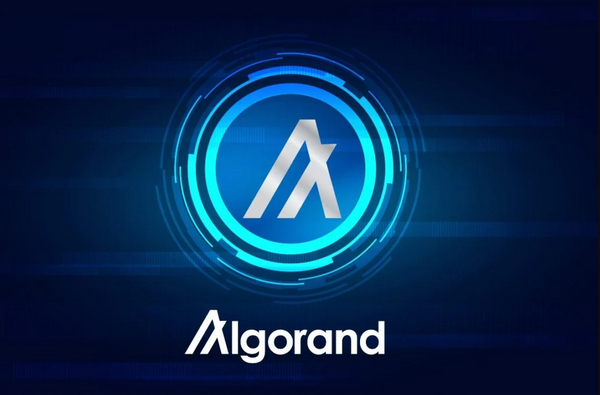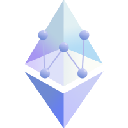-
 Bitcoin
Bitcoin $94,312.0993
-0.62% -
 Ethereum
Ethereum $1,805.7103
0.53% -
 Tether USDt
Tether USDt $1.0005
0.02% -
 XRP
XRP $2.1998
0.24% -
 BNB
BNB $608.1016
0.72% -
 Solana
Solana $148.9611
-1.74% -
 USDC
USDC $1.0000
0.00% -
 Dogecoin
Dogecoin $0.1813
-0.43% -
 Cardano
Cardano $0.7074
-1.68% -
 TRON
TRON $0.2529
4.08% -
 Sui
Sui $3.4699
-3.15% -
 Chainlink
Chainlink $14.8586
-1.44% -
 Avalanche
Avalanche $22.0449
-1.95% -
 Stellar
Stellar $0.2902
1.58% -
 Toncoin
Toncoin $3.3348
3.29% -
 UNUS SED LEO
UNUS SED LEO $9.0795
1.97% -
 Shiba Inu
Shiba Inu $0.0...01417
1.79% -
 Hedera
Hedera $0.1915
-3.07% -
 Bitcoin Cash
Bitcoin Cash $358.7537
-5.08% -
 Polkadot
Polkadot $4.2816
-0.16% -
 Litecoin
Litecoin $87.2835
0.52% -
 Hyperliquid
Hyperliquid $17.8206
-2.83% -
 Dai
Dai $1.0000
0.01% -
 Bitget Token
Bitget Token $4.4047
-0.78% -
 Ethena USDe
Ethena USDe $0.9996
0.00% -
 Pi
Pi $0.6482
0.54% -
 Monero
Monero $230.0411
0.66% -
 Pepe
Pepe $0.0...09137
4.23% -
 Uniswap
Uniswap $5.8009
-1.27% -
 Aptos
Aptos $5.6368
1.59%
What kind of currency is ALGO coin? ALGO coin function, price trend and future prospects
ALGO, the native token of the PoS Algorand blockchain, serves multiple roles, including transaction fees, governance participation, and consensus reward earning.
Oct 31, 2024 at 07:36 am

What is ALGO Coin?
ALGO, also known as Algorand, is a proof-of-stake (PoS) cryptocurrency that serves as the native token of the Algorand blockchain. Algorand was founded by computer scientist Silvio Micali and launched in 2019.
ALGO Coin Function
ALGO plays several vital roles within the Algorand ecosystem:
- Transaction Fees: ALGO is used to pay transaction fees on the Algorand blockchain. Users need to hold ALGO in their wallets to conduct transactions.
- Governance: ALGO holders can participate in the governance of the Algorand blockchain through a process called "Governance Rewards." They can vote on proposals to amend the protocol or allocate development funds.
- Rewards: ALGO holders can earn rewards by participating in the network's consensus mechanism, called "Pure Proof of Stake" (PPoS). Participants are randomly selected to add blocks to the blockchain and receive ALGO rewards in return.
Price Trend of ALGO
Since its launch, ALGO's price has experienced significant fluctuations. Here are some key price trends:
- Initial High (2019): ALGO reached an all-time high of $3.56 on June 20, 2019, shortly after its launch.
- Bear Market (2019-2020): ALGO's price fell during the 2019-2020 bear market, dropping to a low of $0.17 in March 2020.
- Bull Market (2021): ALGO rallied along with other cryptocurrencies during the 2021 bull market, reaching a peak of $2.74 in November 2021.
- Recent Decline (2022): ALGO's price has declined since the collapse of the Terra ecosystem in May 2022, falling to around $0.40 in early 2023.
Future Prospects of ALGO
ALGO's future prospects depend on several factors, including the adoption of Algorand blockchain, the success of its governance system, and the overall market conditions for cryptocurrencies.
Positive drivers for ALGO include:
- The Algorand blockchain's focus on scalability and security.
- The growing number of projects and dApps building on Algorand.
- The potential for ALGO to gain a stronger foothold in decentralized finance (DeFi) and other emerging use cases.
However, ALGO's prospects could be dampened by:
- The ongoing volatility of the cryptocurrency market.
- Competition from other PoS blockchains with similar features.
- Regulatory uncertainties affecting cryptocurrencies.
Overall, ALGO has potential for growth in the long term as the Algorand ecosystem matures and the cryptocurrency market evolves. However, investors should be aware of the risks and conduct thorough research before making any investment decisions.
Disclaimer:info@kdj.com
The information provided is not trading advice. kdj.com does not assume any responsibility for any investments made based on the information provided in this article. Cryptocurrencies are highly volatile and it is highly recommended that you invest with caution after thorough research!
If you believe that the content used on this website infringes your copyright, please contact us immediately (info@kdj.com) and we will delete it promptly.
- SUI Price Surge Hits 60% as Solana Price Prediction Eyes New Highs, Unstaked at $0.0065 Joins Top Layer 1 Blockchain Leaders
- 2025-04-27 02:25:12
- Altcoin season is expected to kick off earlier than anticipated
- 2025-04-27 02:25:12
- XY Miners: The Ultimate Guide to Bitcoin Cloud Mining
- 2025-04-27 02:20:11
- Today's Focus Is on These Prospective Altcoins: Movement, eCash, Snek, and Arweave
- 2025-04-27 02:20:11
- Brazil Now Has the World's First Spot XRP ETF (XRPH11)
- 2025-04-27 02:15:13
- Best AI Crypto Coins to Buy Now as the Sector's Market Cap Reaches a New All-Time High
- 2025-04-27 02:15:13
Related knowledge

What is Ethereum’s Slashing mechanism and how to punish malicious behavior?
Feb 20,2025 at 03:08am
Key PointsOverview of slashingDifferent types of slashing in EthereumIncentives and consequences of slashingIdentifying and reporting slashed validatorsOngoing discussions and potential improvementsEthereum's Slashing Mechanism: Punishing Malicious BehaviorEthereum's slashing mechanism is an essential tool for ensuring network security and punishing mal...

What is the verifier node of Ethereum and how to become a verifier?
Feb 19,2025 at 06:00pm
The Verifier Node of Ethereum: A Comprehensive GuideKey Points:What is a Verifier Node?How to Become a Verifier NodeResponsibilities and Rewards of a Verifier NodeMinimum Requirements for Becoming a Verifier NodePotential Difficulties in Running a Verifier Node1. What is a Verifier Node?A Verifier Node is an independent entity on the Ethereum network th...

What is Ethereum’s staking, and how to participate and earn money?
Feb 19,2025 at 04:37pm
Key Points:Understanding Ethereum's Staking MechanismSteps to Participate in StakingBenefits and Rewards of StakingSecurity and Risk ConsiderationsTechnical Requirements and Hardware OptionsPotential Challenges and Troubleshooting TipsFAQs on Ethereum StakingWhat is Ethereum's Staking?Proof-of-Stake (PoS) is a consensus mechanism used in blockchain netw...

What is Ethereum’s DAO (Decentralized Autonomous Organization) and how does it work?
Feb 20,2025 at 03:12am
Key PointsDefinition and Structure of a DAOGovernance and Decision-Making in DAOsBenefits and Use Cases of DAOsChallenges and Limitations of DAOsWhat is Ethereum's DAO (Decentralized Autonomous Organization) and How Does It Work?Definition and Structure of a DAOA Decentralized Autonomous Organization (DAO) is an innovative governance and management fram...

What is Ethereum's multi-signature wallet and how to improve security?
Feb 20,2025 at 02:18pm
Key Points:Understanding the Concept of a Multi-Signature WalletBenefits and Drawbacks of Multisig WalletsRequirements for Setting Up a Multisig WalletStep-by-Step Guide to Generating a Multisig WalletImplementing Strategies for Enhanced Security1. Understanding the Concept of a Multi-Signature WalletA multi-signature (multisig) wallet in the Ethereum e...

What is Ethereum's oracle and how to provide data for smart contracts?
Feb 21,2025 at 01:30am
Key Points:Understanding the concept of oracles in EthereumExploring different types of oraclesDetailed guide on how to provide data for smart contractsAddressing potential challenges and considerationsWhat is Ethereum's Oracle?Oracles are crucial components in the Ethereum ecosystem, enabling smart contracts to access real-world data and off-chain even...

What is Ethereum’s Slashing mechanism and how to punish malicious behavior?
Feb 20,2025 at 03:08am
Key PointsOverview of slashingDifferent types of slashing in EthereumIncentives and consequences of slashingIdentifying and reporting slashed validatorsOngoing discussions and potential improvementsEthereum's Slashing Mechanism: Punishing Malicious BehaviorEthereum's slashing mechanism is an essential tool for ensuring network security and punishing mal...

What is the verifier node of Ethereum and how to become a verifier?
Feb 19,2025 at 06:00pm
The Verifier Node of Ethereum: A Comprehensive GuideKey Points:What is a Verifier Node?How to Become a Verifier NodeResponsibilities and Rewards of a Verifier NodeMinimum Requirements for Becoming a Verifier NodePotential Difficulties in Running a Verifier Node1. What is a Verifier Node?A Verifier Node is an independent entity on the Ethereum network th...

What is Ethereum’s staking, and how to participate and earn money?
Feb 19,2025 at 04:37pm
Key Points:Understanding Ethereum's Staking MechanismSteps to Participate in StakingBenefits and Rewards of StakingSecurity and Risk ConsiderationsTechnical Requirements and Hardware OptionsPotential Challenges and Troubleshooting TipsFAQs on Ethereum StakingWhat is Ethereum's Staking?Proof-of-Stake (PoS) is a consensus mechanism used in blockchain netw...

What is Ethereum’s DAO (Decentralized Autonomous Organization) and how does it work?
Feb 20,2025 at 03:12am
Key PointsDefinition and Structure of a DAOGovernance and Decision-Making in DAOsBenefits and Use Cases of DAOsChallenges and Limitations of DAOsWhat is Ethereum's DAO (Decentralized Autonomous Organization) and How Does It Work?Definition and Structure of a DAOA Decentralized Autonomous Organization (DAO) is an innovative governance and management fram...

What is Ethereum's multi-signature wallet and how to improve security?
Feb 20,2025 at 02:18pm
Key Points:Understanding the Concept of a Multi-Signature WalletBenefits and Drawbacks of Multisig WalletsRequirements for Setting Up a Multisig WalletStep-by-Step Guide to Generating a Multisig WalletImplementing Strategies for Enhanced Security1. Understanding the Concept of a Multi-Signature WalletA multi-signature (multisig) wallet in the Ethereum e...

What is Ethereum's oracle and how to provide data for smart contracts?
Feb 21,2025 at 01:30am
Key Points:Understanding the concept of oracles in EthereumExploring different types of oraclesDetailed guide on how to provide data for smart contractsAddressing potential challenges and considerationsWhat is Ethereum's Oracle?Oracles are crucial components in the Ethereum ecosystem, enabling smart contracts to access real-world data and off-chain even...
See all articles























































































